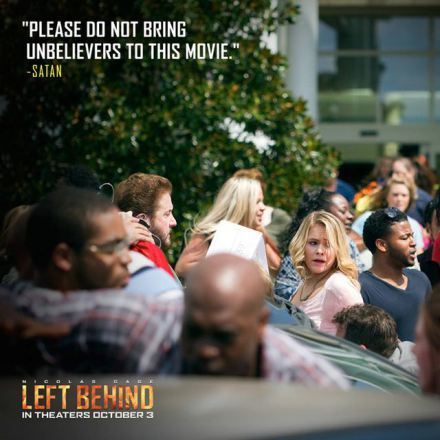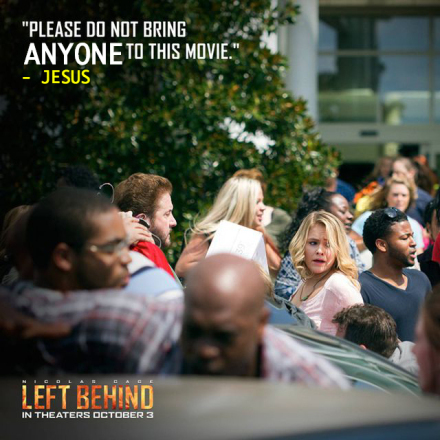Nate Fleming's Blog, page 34
October 9, 2014
Thimblerig’s Top Five Favorite Podcasts
 I’m always on my feet living in China; walking to the bus stop, walking to the store, walking to the school where I teach, walking, walking, walking. And riding on buses. And subways. And not understanding what’s going on around me most of the time.
I’m always on my feet living in China; walking to the bus stop, walking to the store, walking to the school where I teach, walking, walking, walking. And riding on buses. And subways. And not understanding what’s going on around me most of the time.
The result? I spend a lot of time listening to podcasts. Over the years, living in China and Kazakhstan, I’ve found that podcasts have become my primary source of entertainment and information, replacing talk radio, the news, late-night television, and talk shows. It’s like the people hosting the podcasts have become a part of my expat community and my overseas experience. They’ve become one of my important connections back home.
Hasn’t the internet made everything weird?
Be that as it may, I’m particularly interested in podcasts that are somehow connected to the American entertainment industry, to screenwriting, to storytelling, to the culture, and how they all connect to the Christian faith. You’ll find these things reflected in my podcasts of choice, some moreso than others, depending on the podcasts.
And so, I’d like to introduce you – my faithful readers – to my top five favorite podcasts, for your consideration, and in no particular order.
 You might know Phil Vischer as the man who created Veggietales, and provided several of the voices of the characters, including Bob the Tomato. Phil has an amazing story, which you can read about in his book, Me, Myself, and Bob: A True Story About God, Dreams, and Talking Vegetables
You might know Phil Vischer as the man who created Veggietales, and provided several of the voices of the characters, including Bob the Tomato. Phil has an amazing story, which you can read about in his book, Me, Myself, and Bob: A True Story About God, Dreams, and Talking Vegetables
In a nutshell, Phil created the wildly popular kid’s videos featuring talking veggies, and he had lofty aspirations to become the next Walt Disney – but in a God-honoring way – and then lost it all. Phil’s story is a real-life example of Joseph Campbell’s Hero’s Journey, as he went through a very dark place but has come through a better man as a result, with an incredible perspective on life, success, faith, and culture.
I just discovered Phil’s podcast a few months ago, and have grown to really enjoy it. I appreciate that Phil has a great sense of humor (how could you create Veggietales and not have a great sense of humor?), but he can also come through with some really profound perspectives on faith and modern American culture. 
Each week, Phil – along with co-host Skye Jethani and the occasional guest host – discuss cultural issues, the entertainment industry, and current events from a Christian point of view with a refreshing and healthy mixture of seriousness and silliness.
Now, if we could just get Phil to ditch that darned ukulele…
 Pilar Alessandra‘s podcast about “the craft and business of screenwriting” was one of the first podcasts I started listening to, and is the one I’ve been listening to for the longest time. I found On The Page while living in Kazakhstan sometime around 2006 (give or take) when I first became interested in screenwriting. I remember digging in my garden in Almaty while listening to Pilar talking about loglines and treatments, amazed that it felt like I was taking part in an online screenwriting class – with all the fantastic quality content I was receiving. For free! Actually, I feel like Pilar has been my unofficial online instructor for many years. I even took one of her online courses a few years ago, and enjoyed what I learned. I’m grateful for all that she’s taught me these past few years!
Pilar Alessandra‘s podcast about “the craft and business of screenwriting” was one of the first podcasts I started listening to, and is the one I’ve been listening to for the longest time. I found On The Page while living in Kazakhstan sometime around 2006 (give or take) when I first became interested in screenwriting. I remember digging in my garden in Almaty while listening to Pilar talking about loglines and treatments, amazed that it felt like I was taking part in an online screenwriting class – with all the fantastic quality content I was receiving. For free! Actually, I feel like Pilar has been my unofficial online instructor for many years. I even took one of her online courses a few years ago, and enjoyed what I learned. I’m grateful for all that she’s taught me these past few years!
Pilar invites guests from all walks of life in the entertainment world to her podcast, but most commonly writers. She researches her guests well enough to tailor her interviews and bring out the most teachable moments from the lives and work of her guests, all with goal of helping her listeners to improve in their own writing. This is what I appreciate the most about On The Page – that I always get important new concepts and information that help me in my writing. If writing is your thing, particularly screenplays, then you should be listening to On The Page.
 While I’ve been listening to Pilar’s podcast for the longest time, I’ve actually been listening to Steve Brown for over 20 years, just not in podcast form!
While I’ve been listening to Pilar’s podcast for the longest time, I’ve actually been listening to Steve Brown for over 20 years, just not in podcast form!
In the late 1980’s, I attended King College with Steve’s daughter, and – as the audio technician in the college chapel – I had the pleasure to run his microphones during the chapel service when Steve visited and spoke. I was so taken by his focus on God’s grace that it led to me ordering cassette tapes (!) of his talks from Key Life, and always trying to find him on local Christian radio stations when I went from town to town. I also often subscribed to the Key Life newsletter, where I was encouraged and challenged by Steve’s written outlook on life and the Gospel.
I don’t know when I actually found out that the old white guy had a podcast but I was thrilled when I found out that he did, and even moreso that it wasn’t your typical Christian podcast. Thanks to the offbeat humor of producer Eric Guzman, and the wonderful variety of guests from all backgrounds, Steve’s focus on the grace of God really resonates. Steve Brown, Etc can be joyfully irreverent while diving into some very deep waters at the same time, and I highly recommend it to everyone.
You think about that.
 My family was home for the summer, and we were driving across the south in a rented car that had SiriusXM radio.
My family was home for the summer, and we were driving across the south in a rented car that had SiriusXM radio.
Usually, we had to listen to the Disney station (thanks, kids) but every now and then – when everyone was sleeping – I would scan around until I found something interesting. I remember when I found Wretched Radio, and heard the voice of Todd Friel.
He was brusque, loud, and arrogant.
And the more I listened to him, the more I liked him.
When we returned to Kazakhstan, I immediately went and found Wretched Radio‘s podcast, and began to binge listen to past episodes. I couldn’t get enough, and considering that he uploads new episodes five days a week, I had plenty to listen to!
Typically, Todd unpacks events of the day, examining issues from a Christian point of view, also with his somewhat warped sense of humor (Todd was formerly a stand up comedian). But what I really enjoy are the Wednesday episodes, called “Witness Wednesdays”. In these episodes, Todd goes out into some public place with a microphone and talks to people about spiritual things. He will often go to a university campus and talk to students, and sometimes a state fair, and sometimes just out on the street. The more I listened, the more I realized that Todd is not actually brusque or arrogant, he’s just willing to say what he believes with conviction, and he challenges others to think logically about what they believe.
Todd and Wretched Radio have some sort of connection to Ray Comfort’s Way of the Master ministry (although you don’t hear as much about that these days), and so he is quite serious about challenging people to examine their Christian faith critically to see if they really understand what it means to be a Christian. It’s challenging stuff, and usually pretty entertaining.
 Some people enjoy Game of Thrones or Breaking Bad. Others spend hours watching grown men chasing balls all over a field. My guilty pleasure? A podcast. A podcast that is true to it’s name – Never Not Funny.
Some people enjoy Game of Thrones or Breaking Bad. Others spend hours watching grown men chasing balls all over a field. My guilty pleasure? A podcast. A podcast that is true to it’s name – Never Not Funny.
Hello, everybody, indeed.
Hosted by stand up comedian Jimmy Pardo, Never Not Funny is – by far – the most rated R podcast of the group, and it is also the most consistently laugh-out-loud funny.
Pardo and producer Matt Belknap (who used to also produce On The Page – which is how I found NNF), who have been doing this since 2006, have guests from all over entertainment, including comics such as Weird Al, Conan O’Brien, Richard Lewis, Paul Reiser, Sinbad, and many others who I met through the podcast. He typically has stand up comedians on the show, but not always, and the reason I like it so much is because I feel like I’m sitting around a table with some of the funniest people on the planet, just listening to them riff off of each other, tell stories, and bust each other’s balloons.
Ideologically, Pardo and I couldn’t be more different, but I would love the chance to get to know the man, and actually sit down and talk to him, because he’s just an incredibly interesting guy. In fact, with his wit and style, I’ve often thought Pardo’d be the perfect performer to voice the main character in my book, Thimblerig’s Ark, if it were ever made into an animated feature.
Let me make this clear: unlike the other podcasts I’ve mentioned, you don’t want to listen to NNF with the kids around. But if you can handle the occasional sailor-like outburst, and if you think it would be fun to hang out with some very funny people for an hour and a half, you should give it a try.
—
Well, that’s my five. What podcasts do you like, and why?


October 6, 2014
Persecuted • Thimblerig’s Review
Continuing my series of reviews on 2014’s films made by Christians (the so-called “faith-based” films), last night I watched Persecuted, which was released theatrically this summer. I want to get right to the point about this film.
What I liked about Persecuted:
Christians are finally become more technically proficient in the way we shoot our films, or at least in hiring people who know how to shoot a film. Persecuted looks pretty good – being shot, framed, and edited well. The cinematography was by , and editing by . I’m glad films made by Christians are finally starting to look as professional as secular films.
Christians are also finally finding the funds to shell out on quality performers. In this case, the film has some familiar faces – including veteran actors in the title role, as Luther’s Father father, as the sinister senator, and as Luther’s ministry accountant. [Sidenote - as a fan of Quantum Leap, I sure hope Stockwell was well paid for taking what was such a minor role.] I’m also glad that Christian films are finally starting to be more professionally acted. We must be learning something about the production side of things, which is good.
Finally, Persecuted is not a bad thriller. It’s not necessarily a good thriller, but it’s not bad – certainly not bad enough to deserve the ridiculous 0% ranking that the film has gotten on Rotten Tomatoes.
Unfortunately, I wouldn’t put the film much higher.
Why wouldn’t I go very high with my own RT score?
There are several reasons, and they mostly fall on the shoulders of writer/director, .
Technically, while the film was shot well, there was entirely too much darkness in this film. This – coupled with the dark soundtrack – made it irritating to watch. Perhaps – since the film ends in the light of day – the darkness was an attempt at symbolism? If so, it didn’t work. Not at all. Honestly, it came across as an attempt to cover a low budget (which I can’t really say, since I curiously can’t find the budget of the movie reported anywhere.) Regardless of the reasons, it was just unpleasant to watch – the speeches given in darkness with a single spot on the speaker; just about every interior shot was in darkness, again with very focused lighting; it could have potentially been more powerful to have dark deeds being done in the light of day.
Second, the casting. As much as I appreciate the career of James Remar, he was simply not the right actor for the role of John Luther. Not even close. Here’s why:
First, he’s supposed to be the son of Fred Thompson? Really? How old was Fred when he had him? Ten?
Second, Luther’s wife appears to be about forty, and according to his IMDB page, Remar is nearly sixty. Yes, older guys can marry younger gals and have children at an older age, but it just seemed too much of a stretch.
Third, considering the mistakes Luther makes in misguidedly trusting the people around him, he should have been a much younger man. It would have made a lot more sense to have him as a very forty-something successful evangelist who is in over his head, thus trusting the counsel of the sinister senator, buying the accolades and weird backstage pep-talks of his second-in-command, and being stubborn about his faith to a fault, so that the experience teaches him humility. As it is, I’m not sure what Luther learns over the course of the movie.
But I can forgive miscasting. The thing I have a hard time forgiving is more philosophical.
I’m so incredibly bothered that someone would have the nerve to make a fictionalized movie with the title “Persecuted”, imagining possible future persecution of a fictional evangelist in America, while Christians are actually being persecuted in Iraq, North Korea, Central Asia, and many other places around the globe, right now.
I’m amazed that the filmmakers decided they needed to create a fictional story about John Luther, an American pastor, being hunted down by the U.S. government for refusing to support “The Faith and Fairness Act”, a multi-cultural religion law, when there is an actual American pastor who has been held in prison in Iran for the past two years for the crime of sharing his Christian faith, a person whose story is much more compelling and heart-breaking, because it’s true.
The more I think about it, the more bothered I am by the film’s fictionalized storyline, and not for the reasons the filmmakers hoped. On the film’s website, we’re asked to be challenged by Persecuted “to consider how (we) would react if—and when—attempts are made to limit (our) own religious freedom.”
But the film doesn’t really do that at all.
Rather, the film looks at one man who – standing up for his faith – refuses to support a pluralistic religion bill that his senator friend (apparent friend) is proposing, and has his life and ministry torn apart as a result. It seems to me that the film is more a lesson on being wise about the people in whom we put our trust, and not so much about limits on our religious freedom.
So, to back off the philosophical problems I had with this film, I’d like to go back to the writing. I really, really had a problem with the writing in this film, and it was mainly because the film made several promises it didn’t keep.
First, there were the flashbacks to Luther’s conversations with his granddaughter daughter. In those flashbacks, a relationship was set up between Luther and the girl, but we never saw her again. Why make this relationship a big deal, but never give the audience the payoff? You mean to tell me that in the end it’s more important that we see Luther surrounded by his ministry’s board than his family? What that tells me is that the characters didn’t matter – just the Point the filmmakers were trying to make. It was a setup with a disappointing lack of payoff.
Another promise that wasn’t kept was with the senator. Here he was – the big scheming senator – the guy who was putting Luther through all this hell – the main antagonist – and he’s offed in a heartbeat by order of the president, and Luther’s nowhere nearby when it happens. Are you kidding me? This is the guy that arranged Luther’s whole predicament, and he doesn’t even get to be a part of the climax? It should have been the senator, deciding to get his hands dirty, chasing Luther up the mountain. It should have been the senator that Luther is FORCED to kill to protect the FBI agent. But no, it’s this nameless strange assassin – the dog on the senator’s leash – who is in the climax for some inexplicable reason. What a misfire on the filmmaker’s part.
This brings me to ANOTHER set up lacking a payoff… when the FBI agent was talking to Brad Stine’s character – asking him suspicious questions about the senator, it seemed like the FBI was quietly investigating the senator,but it was dropped, never discussed again. Why? What was the point?
The lady in the ministry van, who loans Luther a phone, and then she’s gone?
The drug addicts who witnessed Luther being set up. We see them for a moment, and then they’re gone?
The young priest who drives Luther away from the bad guys, uploads the incriminating video, and then he’s gone?
Luther’s shot in the friggin’ back – with a hole in his spine – but he still drives away and fights to the bitter end?
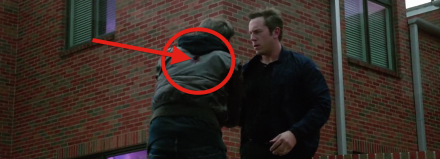
The man’s shot in the middle of the back, and he’s still going on? Is this Rambo?
I could go on, but the longer I’m thinking about this movie, the sloppier it seems. So, rather than continuing to nitpick the problems, let me look at my five standards for filmmaking by Christians, as written about here, to see how Persecuted stands up.
Films made by Christians should take risks.
Considering that Christian filmmakers haven’t tackled the political thriller genre that much – unless you include the end-times movies – I’d have to give props to the makers of Persecuted for trying a unique mashup of genres. However, it’s unfortunate that the film was rather paint-by-numbers political thriller, with no genuine surprises or twists to surprise or shake the viewer. This was unfortunate, and meant that ultimately, the film was not very risky.
Films made by Christians should challenge the audience.
If the audience was the “faith-based” audience, there was no challenge here. Yes, the filmmakers stated that they wanted to challenge the audience to imagine a time when we’re losing our religious freedoms, but it didn’t succeed. Perhaps because it was so focused on one man’s story, and he was put there by his own lack of judgment in the character of those around him, it just didn’t feel prophetic or even relevant. If anything, the core audience who saw this film were probably the folks who already think that politicians are sitting in Washington trying to figure out how to bring about the destruction of all Christendom.
And the character of John Luther is supposed to challenge us in our faith, but with all he’s going through, Luther remains robotically steadfast – which is admirable in real life, but disappointingly uninteresting in a character in a film. After discovering his father’s unfortunate death, the only crisis of faith Luther appears to have is standing on the cabin porch and screaming, “Are you not true to your name?” and then he’s back to the business of surviving, with nary a tear shed. His father was executed, for heaven’s sake! Because of the choices that Luther made! The man should have a moment of brokenness at some point, but he never seems to arrive at that point.
Art is Art, the Pulpit is the Pulpit
This film preaches all over the place, with a disturbing mixture of Christianity and conservatism. It would have been more appropriate to call the movie Didactic: The Movie. That’s all I have to say about that.
Films made by Christians should raise important questions
On the one hand, it could be argued that Persecuted raises the question – what will happen if your government turns against you? But is that really an important question to raise? Our country is so polarized that the question is a hot button question, feeding the paranoia of the kind of Christian who think Left Behind and God’s Not Dead are brilliant movies just because they talked about God in a nice way.
But for those Christians, I don’t think it’s the kind of question that really needs to be raised. Ragamuffin came a lot closer to asking the right questions – looking unapologetically at the personal struggles of a Christian icon. Believe Me – using self-depreciating humor – made Christians look at themselves and ask important questions about how well we think things through. Mom’s Night Out, asks Christian moms at the end of their rope to consider what really matters.
These “faith-based” films all asked more important questions than this Persecuted, a film which wants to be a lot more important and relevant than it really it is.
Christian films should tell good stories
I think I’ve already shown that Persecuted falls woefully short of this. If the filmmakers had cast a younger lead, if they’d followed through with the promises they made, and if they’d filmed a few more scenes in the light, it might have been a stronger story. Unfortunately, it failed.
A test I always put to a faith-based film is to ask this question – would I be happy to show this film to friends who don’t attend church? Showing Persecuted? Nope. I wouldn’t do it.
—
 And in conclusion – while I don’t put a lot of stock in the RT rating system when it comes to “faith-based” films – I think we, as Christians, should pay attention to what the secular reviewers say – since we should desire our films to reach beyond our Christian subculture. I find it fascinating that the highest rated “faith-based” film I could find at Rotten Tomatoes was Phil Vischer’s 65% scoring, “Jonah: A Veggietales Movie.“
And in conclusion – while I don’t put a lot of stock in the RT rating system when it comes to “faith-based” films – I think we, as Christians, should pay attention to what the secular reviewers say – since we should desire our films to reach beyond our Christian subculture. I find it fascinating that the highest rated “faith-based” film I could find at Rotten Tomatoes was Phil Vischer’s 65% scoring, “Jonah: A Veggietales Movie.“
The lesson I take from that? Christians need to make more movies with talking vegetables.
And by the way, if you don’t, you should really listen to the Phil Vischer Podcast. It’s the most intelligent, reasonable, and entertaining culture-examining podcast by Christians that you’ll find.
Even if Phil does insist on playing that annoying ukelele.


October 3, 2014
Left Behind gets a plug from Satan. *FACEPALM*
While sloshing my way through the expected terrible reviews for the Left Behind reboot, I came across this promotional shot that the Left Behind marketing people apparently thought to be a clever way to advertise their film – a campaign that hasn’t gone un-mocked by secular reviewers.
First, allow me to let Nic Cage himself respond.
Now I want to try and figure out what’s going on here.
Either this was (1) an earnest but misguided attempt by some Christian marketers to encourage Christian filmgoers to bring their non-Christian friends to Left Behind, or this was (2) a blatantly vulgar attempt by some secular marketers to pump up the hoped-for evangelical Christian audience, and try to sell more tickets as they encourage Christian filmgoers to bring their non-Christian friends to Left Behind.
Either way, this brings me to a few messages I’d like to put out there. To the non-Christians who read my blog, to the Christians who read my blog, and to the filmmakers who made Left Behind.
First, to the people who aren’t Christians: if you are one of those non-Christian friends dragged to this movie by your well-meaning Christian friends or family members, let me apologize on behalf of all Christiandom. Most of us are slightly repulsed by the idea that this movie has been made, and many of us recognize the enormous amount of patience that you show every time our brothers and sisters force you to sit and watch one of the films coming from our subculture. Please forgive us.
Second, if you are a Christian and you think that taking a non-Christian film to a movie like Left Behind is going to somehow help you “plant seeds” or make some headway witnessing to your neighbors, understand this: you are torturing them by taking them, to this and to most so-called “Christian” films. They are only going with you because they love you, or they respect you, or they like you – not because they enjoy the films. There may have been some exceptions to this rule (Mom’s Night Out and Believe Me were pretty good in different ways), but for the most part – if it carries the label “faith-based”, go see it with your church group, but please your non-believing friends out of the mix.
Third, if you are one of the producers or writers of Left Behind (and other schlocky faith-based films), stop it. Just stop it! Please, for the love of God (and I mean that in the sincere way, not the cliched way), just stop it!
Don’t you guys know that you are digging a deep, deep grave for filmmaking by Christians in the eyes of the world, and you are doing more harm than good by continuing to produce schlock like this? Don’t you care that nobody outside our subculture has the least amount of respect for what you are doing? It doesn’t bother you that as of the writing of this blog post, Left Behind has a Rotten Tomato rating of 2%, which is only slightly higher than this summer’s Persecuted, which has an amazingly low score of 0%. (I’ll be watching and reviewing Persecuted this weekend. The things I do for my readers…)
And the big question: Don’t you think that our faith deserves better?
Please do us all a big favor and read my blog post, “What’s Wrong with Christian Filmmaking“, and follow my five tips before you produce or write your next film. Trust me. It can’t make things worse, and it might actually make things better.
And to the marketers, I think this might be a better, more appropriate (and yet slightly inappropriate) poster for Left Behind, and most of our tepid faith-based film projects:
Feel free to use it as you see fit.
By the way, be sure to read “I Hope I Get Left Behind,” an interesting analysis of the problems of Left Behind‘s eschatology.
And also, if you are looking for a good end-times movie, give this old Demi Moore movie a try, and you can even invite your non-Christian friends to watch with you!


Exodus: Gods and Kings
Will this take on a Bible story be another big bust?
Or will it be a big argument that non-faith-based filmmakers can tell our stories better than we can, because they aren’t as close to the source material?


September 28, 2014
Believe Me • Thimblerig’s Review
A few weeks ago, I got wind of Believe Me, a little indie film that was being produced by some Christian filmmakers – and the thing that really got my attention was that was somehow involved.
Nick Offerman, who plays the impressively mustachioed libertarian director of the parks department in one of my favorite sitcoms, Parks and Recreation, involved in a film made by Christians?
I was further perplexed when I did a bit of research and discovered that the guys making this film, who run a studio called Riot Studios, had never made a feature film before.
And they got Nick Offerman?
Extremely curious, I went and found a copy of Riot Studio’s claim-to-fame documentary, Beware of Christians, and watched it. You can read my review here. I walked away somewhat reassured that the guys making Believe Me were spot on theologically, but I was also extremely nervous. Could these Christian kids pull off a decent feature length movie?
After all, I’ve been challenging Christian filmmakers and the church-going audience about the condition of our films in blog posts like this, and this, and this, and this, and this. So needless to say, I am heavily invested in the possibility of seeing good filmmaking by Christians.
Last night I watched Believe Me, and now I really, really want to call this post, “What’s RIGHT with Christian Filmmaking”.
Because the boys at Riot Studios get it. They GET IT.
Let me give a quick synopsis of the film.
The film tells the story of Sam (), a frat boy who is about to graduate from university when he finds out from his dean (Nick Offerman in the world’s shortest cameo – but I’m still impressed that they got him) that he has nearly $10,000 in back tuition that has to be taken care of before he can graduate, a bill he can’t afford to pay. Sam is not willing to take time off to try and earn the money because he’s afraid he’ll never get back on track to continue his education in law school, but he also doesn’t have access to that kind of money.
A girl-hunting trip to a campus church is the inciting incident that propels this story forward, as Sam sees how much money Christians are willing to give to ministries. This leads him to hatch a scheme to create a fake ministry to scam money away from Christians. He enlists the aid of his roommates and frat brothers, Pierce (, who looks amazingly like he could be the product of a union between Christian Bale and Tom Cruise), Baker (), and a reluctant Tyler (), the conscience of the group, who is not from Africa (that bit made me laugh). In a short amount of time, their “ministry”, Get Wells Soon – allegedly digging wells in Africa – is born.
The ministry is an immediate success, mainly because of Sam’s Jeff Winger-like ability to tell people what they want to hear, and gets the attention of Ken Hopkins (veteran actor ), the executive director of Cross Country, the “second most impactful ministry in the country” (as rated by the Holy Herald). Hopkins offers the boys a spot on his twenty-seven city tour, and an opportunity for them to raise some serious support for Get Wells Soon.
Realizing that this is their chance to score some serious cash, the boys (who become known as The God Squad) accept Hopkins’ offer, and join the Cross Country team. Along the way they meet worship leader Gabriel () – although he doesn’t call himself a worship leader, again – laugh out loud moment, and Callie the tour coordinator (), who also seems to be the most sincere Christian of the Cross Country bunch.
Over the next few weeks, the team criss-crosses the country, and Sam and the rest of the God Squad become better and better at selling their scam, and they begin to skim quite a bit of cash off the top of the donations. But of course, conflict emerges, secrets become known, and they are faced with losing everything. But I’m not giving out any spoilers with this review, so if you want to know what happens, you’ll have to go see Believe Me. You can also download it and watch it here.
And I would highly recommend that you do.
When I wrote What’s Wrong with Christian Filmmaking, I said that Christian filmmakers needed to do five things so that our filmmaking could have an impact outside the Christian bubble.
Those five things included:
1. Our films need to take more risks.
Believe Me was an incredibly risky movie for Christian filmmakers. The hero of the film is a con-artist fratboy, and so he and his buddies talk and act like con-artist fratboys. The movie has a PG-13 rating for language, but the characters talk the way those characters would talk – with little punches pulled. They also drink a LOT of beer, and that’s shown. But it doesn’t seem like the filmmakers did this because they wanted to shock the traditional faith-based audience, they did this because they wanted the film to be true. And Sam and his friends acted true to the way guys like that would act.
2. Our films need to challenge our audience.
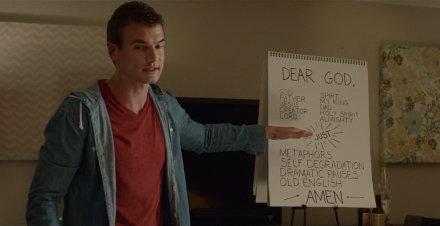
Sam teaching the other members of the God Squad the important words to use in prayer.
I absolutely loved that this film took contemporary evangelical American Christianity, and allowed us to see ourselves through the eyes of the non-Christian con-artists. First of all, Gabriel, the incredibly pretentious non-worship leader worship leader, has a signature song called “Jesus”, and according to the screen in the scene, it’s simply repeating the word “Jesus” over and over again (x16). Secondly, Sam realizes that if he and his friends are going to pull off this scam, they need to be able to be completely convincing as modern Christians, and so he assigns each member of his team a different aspect of Christianity to investigate, and then they will teach each other how to be convincing. This bit was hilarious, and reminded me a LOT of the humor of Tim Hawkins, who also has fun with modern Christianity in his standup routine. The bit on how to pray was especially pointed, and has been a bone of contention for me for a long, long time.
One of my biggest problems with movies being made by Christians these days is that they are tailor making films for the Christian subculture, and I firmly believe that this should not be the mission of all filmmakers of faith. I contend that filmmakers who follow Christ should be making films that people outside the bubble would want to see, and in the process we might actually be able to see seeds of our faith planted.
I loved that Believe Me was not necessarily made for Christians, that this film is well-made and well-told enough that we could gladly show it to our non-Christian films, but I also think that this is a film that mature adult Christians need to watch. Because it’s about us.
3. The pulpit is the pulpit, and art is art, and we need to let them be the two different things that they are – in other words, don’t have preachy, didactic films.
This film is all about a cross-country ministry, and several scenes involve Sam preaching to the audience, but the film never comes across as preachy, because we know that he doesn’t believe the things that he is teaching. The film comes closest to being preachy when Sam and Callie are having private conversations, but those scenes aren’t preachy because we know that she is sincere – and she is talking the way Christians talk – and we know that Sam is not, and he just doesn’t get it.
And when things start to turn (again, not giving out spoilers), it seems like things are turning the way that they would turn. It doesn’t seem contrived, or forced. It doesn’t feel heavy-handed or didactic. It might be a bit predicable, but then we have that ending, which was oddly satisfying in its ambiguity. Which brings me to the next point…
4. Our films shouldn’t give all the answers.
Without going into details, I love the ambiguity of the ending of the very last scene of the film. That – my friends – was a spectacular choice by the filmmakers. But you’ll have to see it to understand. It just goes along with my contention that not every question needs to be answered in filmmaking, because that is what creates good discussion and conversation.
5. We are beholden to tell good stories.
Believe Me is a well-written, well-acted, well-produced film. The script was pretty solid, and the filmmakers somehow made me care about these four fratboy con-artists, and by the end of the film I was rooting for them to somehow find their way out of the mess they’d made for themselves.
The movie had several laugh-out-loud moments, and when it threatened to get bogged down in the sincerity of the third act, it pulled itself out and recovered nicely. The filmmakers went to the trouble to hire real actors who were believable, who have no connection to the modern contemporary faith-based filmmaking scene, and I hope that it pays off for them.
The only part I didn’t like about Believe Me was the LeCrae scene. I didn’t quite get why Callie was in that movie theater, and what kind of movie she was going to see, and it felt a bit forced as a way to get LaCrae into the movie. It seemed like this was an attempt on behalf of the filmmakers to show that they had some sort of cred with the hipper elements of the evangelical Christian subculture – “Hey! We got LeCrae!”, and it just didn’t work for me.
But hey, at least it wasn’t Willie Robertson!
Folks, this is a historic moment. Believe Me is the first film made by Christians to be awarded the coveted five golden groundhogs for doing all five of these things, so first of all – congratulations to Michael Allen and Will Bakke for this high honor. I wish I actually had golden groundhogs that I could send to you guys.
In conclusion, I look forward to seeing the future efforts by Riot Studios. You guys have my prayers (without overusing the word “just”), as well as my admiration. And if you ever want to get into feature animation, I’d love to talk to you about my novel, Thimblerig’s Ark. It seems like it would be in your wheelhouse.


September 27, 2014
The Problem with Faith-Based Movies is that they are Faith-Based Movies
 I recently read a story over at The Wrap cleverly titled, “Faith-Based Movies’ Box Office Goes To Hell” that reported that the more recently released so-called “faith-based” films did not repeat the box office success of the springtime’s Son of God, God’s Not Dead, and Heaven is for Real. You can see the little chart that they made over on the right.
I recently read a story over at The Wrap cleverly titled, “Faith-Based Movies’ Box Office Goes To Hell” that reported that the more recently released so-called “faith-based” films did not repeat the box office success of the springtime’s Son of God, God’s Not Dead, and Heaven is for Real. You can see the little chart that they made over on the right.
Among people, the article quoted Phil Cooke, who put forward the contention that films made with faith-based themes (as with any films aiming to connect with a subculture) would do better to wave a flag stating clearly that the film contains Christian values, so that the subculture can recognize that the film is okay for them to view.
I respect Phil Cooke, having had some interaction with him over the past couple of years, and I agree that what he is suggesting makes sense from a bottom-line point of view, but (and you might call me naïve) I’m tired of looking at filmmaking by Christians from the bottom-line point of view.
That’s what Hollywood has been doing since Passion of the Christ, and it’s not resulted in many better made films made by Christians – it’s mainly resulted in more and more films that succeed in preaching to the choir. The sign of whether or not they are successful? The infernal bottom-line – because the successful ones get the church bottoms in the seats, and that is all that matters.
Church, the fact that we expect this from our filmmakers – and that we don’t support them if they don’t package their films in a way in which we can approve – borders on sin.
Think about it. One of the clearest commands in Scripture is Matthew 28:19, where Jesus calls his followers to go out into the world and make disciples. But with our filmmakers, we’re happy for them to keep it in the bubble. We want our filmmakers to massage us, make us feel good, make the sinful world look bad, and help us in our attempts to ostracize ourselves from the rest of society.
If you are in the church, and that is true for you, I have a few very important reflection questions for you:
When will we (the church) wake up and release our filmmakers to go out into the world? When will we tell them to get out there and stop worrying about the subculture – just make good movies that draw all kinds of people? After all, we release our missionaries – and support them financially – to go to the corners of the globe and do all sorts of things – medicine, engineering, teaching, social activism. We do this because we trust that they will be living out their Christian faith as they serve the people to whom they’re called, that they will be Christ’s ambassadors (2 Corinthians 5:20), that they will represent us – and Christ – with honor and distinction.
But we don’t trust our filmmakers to do the same thing. When will this change?
When will we stop requiring them to raise a banner that identifies them clearly before we agree to support them? When will our mission-minded churches start to seek out filmmakers laboring in the fields outside the bubble to see how we can support their vision – and not just our own?
Now, if you are a filmmaker and you are reading this, I have a few important things to tell you:
You need to know that there are lots and lots of us in the church that want you to be the next Christopher Nolan, or the next Katherine Bigelow, or the next Tomm Moore, or the next Steve McQueen, or the next George Lucas. We want you to make the big summer blockbusters and we want you to make the quiet art house films, we want you to be nominated for best original screenplay or best actress or best director or best picture. We don’t really care if you are nominated for a Dove Award. We don’t really care if you get the Newsboys or Audio Adrenaline to perform on the soundtrack. We will rise up and call you blessed if you don’t involve Duck Dynasty at all.
What do we want from you? We want you to be setting the standard for excellence in filmmaking. We want to be able to look up at you and smile with the knowledge that you are one of ours, laboring away in the fields of the film industry, confident in the knowledge that you are where you are because the God of Heaven placed you there. Praying for you to have an impact on the corner of the world He’s given you to have an impact upon.
And yes, I do understand that you want to feed your family. I understand that you have to pay your student loans. And I understand that the Christian subculture can potentially give huge returns to small investments.
But do it the same way everyone else does it – by becoming excellent at your craft. Let the Hollywood producers worry about tapping into the faith based crowd, because they don’t really care if you are the one they’re pushing or if it’s someone from outside the family (Evan Almighty, anyone? Man of Steel, anyone? Did anyone see the way they pushed Aronofsky’s Noah? And get ready for the push to support the famously irreligious Sir Ridley Scott and his Exodus).
Forget about all of that, and just make really good movies.
Personally, I’m thinking of writing a faith-based screenplay that focuses on a non-Christian Hollywood producer trying to make a faith-based film. It could be one of the most entertaining comedies of the last ten years, and I could even add “Based on a True Story” as a title card.
Post Scriptum – I am not opposed to films made for the Christian subculture. I just wish we could give as much energy and support to those films being made for secular audiences by believers as we do to those being made for us.


September 23, 2014
Moms’ Night Out • Thimblerig’s Review
Last Friday, my wife, my kids, and settled down to enjoy our traditional Friday night family movie night. We’d ordered pizza (yes, you can do that in China) and got ready to watch Moms’ Night Out. I was nervous as I hit the play button, because I knew I would be writing a review of this film – continuing my series of reviews of films made by Christians – and I knew that the odds were stacked against me having very much positive to say. After all, am I not the blogger who wrote the highly critical article, “What’s Wrong With Christian Filmmaking“? I don’t like anything made by Christians, right?
So. My immediate thoughts after watching the credits roll?
This film couldn’t have been made by Christians.
It wasn’t preachy. It was acted well. It was genuinely funny. And the real kicker? I’d be happy to watch it with my friends who aren’t a part of the Christian subculture.
Is this truly the state of filmmaking from Christians, when we’re actually starting to make good films?
Maybe there’s hope after all?
The irony about how much I enjoyed Moms’ Night Out was how little the critics enjoyed it. After watching the film I looked up the reviews on Rotten Tomatoes, and was shocked to see that the film had a 18% fresh rating – with complaints about “archaic gender roles”, sexism (towards men), regressiveness, and overall blandness. As I read through the reviews, I began to sense that some of the complaints seemed to stem from the fact that this film was one of a slew of so-called “faith-based” films that were released this year, and it became obvious that some “faith-based fatigue” has started to set in.
With that in mind, I feel the need to critique the critics for a moment. I was stunned to see that so much of the negative criticism of the film stemmed from the filmmaker’s support of “traditional gender roles.” Further, I was angry that so many critics viewed portrayal of a stay-at-home-mom as regressive – writing about that choice (aren’t we supposed to celebrate choice?) in a belittling and negative manner.
Let me get this straight – if you have a film that portrays two working parents then it’s positive, but it’s somehow a negative to portray a home where the mom works at home. Okay, check. It’s progressive to have a film that shows two daddies, but it’s regressive to show a husband and wife in a committed relationship. Right. Got it. To truly wow the critics, try having a single parent, and you’ll have them on your side at once.
But feature a few traditional marriages that seem to be working?
Then you are obviously stuck in the 1950’s.
If that’s regressive, then sign me up.
But I digress. Critics only get it right when we agree with them, and anyway, I’m not here to write a critique of the critics. I’m here to review Moms’ Night Out. So, here we go.
What I liked about Moms’ Night Out.
1. The Casting
 With a perfect combination of comic timing and vulnerability, Sarah Drew was fantastic playing stressed-out mom, Allyson. She succeeded in making this potentially irritating and shrill character into a character that I liked and found myself caring about. In fact, what I saw in Sarah in Moms’ Night Out leads me to believe that she would kill playing Lucille Ball if they ever decided to reboot I Love Lucy.
With a perfect combination of comic timing and vulnerability, Sarah Drew was fantastic playing stressed-out mom, Allyson. She succeeded in making this potentially irritating and shrill character into a character that I liked and found myself caring about. In fact, what I saw in Sarah in Moms’ Night Out leads me to believe that she would kill playing Lucille Ball if they ever decided to reboot I Love Lucy.
Having said that, let me make a quick note to the studios: please don’t ever decide to reboot I Love Lucy.
Please.
Back to the actors… Sean Astin did a great job as Allyson’s husband, Sean – and he reminded me specifically of a couple of incredibly busy dads who I know, who love their families, but also have chosen work that takes them out of the house for days at a time. I take issue with the critics who complained that the men in this film were incompetent, largely because of Sean Astin.  Yes, he was overwhelmed with the kids when he took them out, but no more than Allyson had been at the start of the film. Why did the critics miss this? Everyone is overwhelmed and acting foolish in this film – men and women alike. It’s not reverse sexism at play, but thanks, critics, for looking for a reason to not like the movie.
Yes, he was overwhelmed with the kids when he took them out, but no more than Allyson had been at the start of the film. Why did the critics miss this? Everyone is overwhelmed and acting foolish in this film – men and women alike. It’s not reverse sexism at play, but thanks, critics, for looking for a reason to not like the movie.
Confession time: I had a big celebrity crush on Patricia Heaton when she was played Debra on Everybody Loves Raymond, so I was glad to see her back on the screen. She was well cast as the busy preacher’s wife, and she was funny while bringing a bit of maturity to the trio of moms who were having a night out.
The rest of the cast did a good job, including comic turns by Andrea Logan White as the third Mom, David Hunt as an expatriate Brit cabbie, Kevin Downes as Sean’s old friend (I actually wanted to see more of Kevin – he was an interesting but underdeveloped character), and a surprisingly well-acted performance by country singer Trace Atkins as Bones the tough-guy biker (Pinterest? Really? That was a laugh-out-loud moment for me).
2. The Writing
 Moms’ Night Out is the film equivalent of Napoleon Dynamite’s liger – a rarely-seen almost mythological creature – a laugh-out-loud comedy made by Christians.
Moms’ Night Out is the film equivalent of Napoleon Dynamite’s liger – a rarely-seen almost mythological creature – a laugh-out-loud comedy made by Christians.
Typically, comedy in our “faith-based” films is awkward, goofy, and pedestrian – more like the efforts of some amateur improv troupe than serious attempts at humor in mainstream motion pictures. Our cinematic comedy usually feels like it was shoved into a bad dramatic storyline to offer comedic relief, and while the attempts may gets laughs, it’s usually not terribly smart.
The laughs in Moms’ Night Out were smart. Yes, there were the goofy moments (just about every scene with Marco), but the humor was overall well-written and acted, and as the anxiety of the night built, so did the laughs.
But it wasn’t just laughter. This was a movie with heart, and as a parent of young children, I identified with the problems and challenges these families were experiencing. The filmmakers did a nice job bringing everything down to the touching conversation between Allyson and Bones in the waiting area of the jail.
I really, really liked this scene! Yes, it had a powerful message about Allyson needing to allow herself to be herself. And yes, it mentioned the name of Jesus (shocking!), but even so it didn’t come across to me as preachy. How did Christians actually manage to make a climactic heartfelt scene that wasn’t preachy? Stunning! Was it the writing? The acting? Maybe it was both!
Regardless, the writers made the fantastically unexpected choice of having the tattoo-parlor biker comforting the suburban church-going housewife rather than the suburban church-going housewife leading the tattoo-parlor biker in the Sinner’s Prayer, and I loved it. It was a surprising choice, a lovely calm moment in the middle of all of the comedic chaos, and it worked.
The Revolutionary Spirit of the Film
In 2014, Moms’ Night Out is a revolutionary film. It is a dangerous film. It’s a film that stands to piss off a whole lot of people.
And I love it for that.
Think about it – the film shows families that support each other, even when under stress; it shows husbands who go out of their way to care for their wives – even when the wives are obviously stressed out; it has a lead who has the ambition to stay at home and homeschool her kids; It treats faith like a normal part of life, and shows that people of faith aren’t that much different than people who don’t claim a faith.
Twenty years ago, these ideas would have seemed typical, maybe even dull. Today? They so stun the world that many critics can’t get past it.
And because the film was light, and airy, and not didactic, it worked.
Moms’ Night Out was not the typical “faith-based” film – no Christian celebrity cameos, no overt Gospel presentation, no cheesy acting and production values…
…and it worked.
In conclusion…
For all those filmmakers of faith out there with spec scripts burning up your harddrives, let this film serve as a lesson for you. You don’t have to make films that are so on-the-nose. You can make films that tell the stories that you want to tell, and they can be good and even make money – even if they don’t check the all the prerequisite boxes of the Christian films of the past.
Read my past reviews here:
Up next?
Believe Me, which will be released this weekend, both in theaters and online, which means I’llbe able to watch and review while it’s fresh!


September 17, 2014
School of Rock Lesson #1 • Those Who Can Do Well, Teach Well
I re-watched School of Rock last night, for the first time as an actual teacher, and walked away with ten lessons for teachers, which you can read right here. I’m going to spend a few days unpacking some of those lessons.
This is the first part.
[It's been ten years, but I'll go ahead and say there are a few spoilers coming. You've been warned!]
Let’s be honest. While many teachers go into education because they feel called to the field from an early age, many others fall into it backwards. It’s a means to an end, a way to pay the bills. They do it, and they enjoy it, and they love the students, but if they could rub the lamp and finagle three wishes from the genie, then they’d follow a different dream in a heartbeat.
This is written for those teachers.
You know who I’m talking about: the baseball coach who thought he would play in the majors; the math teacher who still tries to find time to write the Great American Novel; the drama teacher who imagined she would direct Shakespeare in New York; many teachers – deep down – feel like they’ve had to let go of their dreams. It doesn’t mean they’re bad teachers, but what it might mean is that they might drag their feet to work each day.
This letting go of dreams is a recurring theme in School of Rock, where Dewey’s brother has chosen to leave behind his dream of being a musician to pursue a more secure lifestyle as a teacher. Dewey finds himself in that same situation, fired from his rock band, and surreptitiously taking a substitute teaching job offered to his brother to make money to pay the rent.
To Dewey, the education system is “the man”. The enemy right from the start. His very presence in the school shows his lack of respect for the institution, with the job only being a falsely gained means to an end. He is even brazen enough to repeat the cliché that “those who can’t do, teach” while talking with the other teachers!
 Dewey slowly shows a change of heart as he secretly teaches the students to play rock music, while seemingly not teaching them anything else (he definitely is teaching them more than rock music, but I’ll get to that later). Dewey’s turning point is at the Battle of the Bands, when the wildly popular prepubescent band blows away the audience, but loses the competition. Dewey is angry and disappointed until the students remind him what he said before, that they weren’t in the competition to win, but to rock.
Dewey slowly shows a change of heart as he secretly teaches the students to play rock music, while seemingly not teaching them anything else (he definitely is teaching them more than rock music, but I’ll get to that later). Dewey’s turning point is at the Battle of the Bands, when the wildly popular prepubescent band blows away the audience, but loses the competition. Dewey is angry and disappointed until the students remind him what he said before, that they weren’t in the competition to win, but to rock.
In the process, something clicks, and we – along with Dewey – realize that the saying should actually be, “those who can do well, teach well“. This movie has been an exploration by Dewey to discover that he is actually good at the job he’d always hated before – teaching – and that through teaching he can actually live his dream while helping guide others to achieving that same dream.
And in the end, owning and operating his own private School of Rock studio, he’s finally living his dream.
He’s teaching, and he loves it.
Even if he might not be opening for Motörhead.
So, if you are a teacher who has dreams that seem to be just over the horizon, just out of reach, be encouraged! Don’t grow resentful that you aren’t achieving some certain dream for your life, rather let your dream fuel what you are achieving!
Let your dream ignite your passion, and in the process, you might just find that you are not only a better teacher, but that acceptance and embracing of teaching might be the thing that puts your dream within reach.
And a word to the wise. If your unfulfilled dreams involve achieving a certain level of fame or notoriety, just remember the countless teachers who might not be well known outside of their community, but within the community they have had lasting impacts on countless lives.
They – because they were teaching their passion and their dreams – left behind something far greater.
They left behind a legacy.
Next up? Teach to your passions, not to the test.
—
Nate Fleming is living the dream, teaching at an international school in China, just across the bay from Hong Kong, and writing children’s books while teaching students how to write. He’s just published his first novel, Thimblerig’s Ark.


September 16, 2014
10 Things I Learned About Teaching from School of Rock Ten Years Later
After eleven years, Jack Black’s School of Rock has been back in the news. First, Andrew Lloyd Webber announced last year that he was aiming to turn it into a Broadway musical, and then just last month Nickelodeon announced that they are turning the premise into a weekly series! This, coupled with last year’s story about the cast’s ten year reunion in Austin made me realize that it might be a good time to revisit the film.
So, last night the family and I settled down to revisit rocker wanna-be Dewey Finn’s duplicitous foray into the world of elementary school teaching, and I was pleased to see that the film has held up well, and I enjoyed it as much as I’d enjoyed the first time I’d seen it, about ten years ago.
But there was a fundamental difference. This was the first time watching School of Rock as a full time teacher. I’ve been teaching upper elementary in Kazakhstan and China for the past seven years, and the reality of my experience in the classroom made watching Jack Black’s attempt at teaching even more interesting.
As I watched, it began to dawn on me that this film was not only entertaining, but there were some pretty substantial lessons any teacher could/should take away from watching Dewey Finn rocking out with the kids from Horace Green Elementary. So, even though it’s about ten years late, here are my…
Ten Things I Learned about Teaching from School of Rock Ten Years Later
1. It’s not “those who can’t do, teach” – it’s “those who can do well, teach well.”
 2. Teach to your passions, not just to the test.
2. Teach to your passions, not just to the test.
3. The best teachers take the time to discover each student’s strengths and capitalize on them.
4. But at the same time, don’t pigeon-hole your students; give them room to surprise you.
5. Encouragement is one of the most important gifts you can give.
6. Administrators are people, too.
7. Students need respect as much as adults.
8. Give your students freedom to learn, but also help them to know the limits.
9. You don’t have to be entertaining to be a good teacher (but it doesn’t hurt).
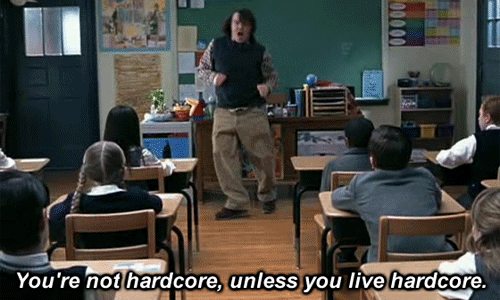
10. Believe in your students, and they will learn to believe in themselves.
I’m going to unpack some of these in coming days, as well as talk about some of the “anti-lessons” of the movie, but meanwhile, there you go.
Anyone have anything to add to this list?




